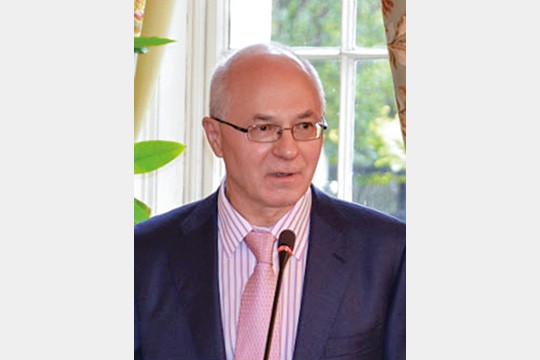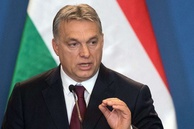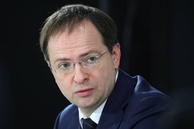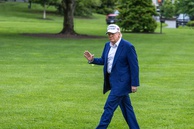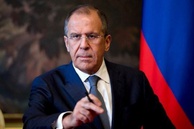There are no paragraphs and no laws!
But no light came from anywhere.
Andrey Bely
[T]hat’s the main trouble with them. They never understand jokes. They will never understand jokes. Their souls are
dry – flat and dry…
Fyodor Dostoevsky
THERE is no longer any doubt that the Western blitzkrieg in Ukraine has failed phenomenally. The seven-year rearmament of Ukraine, comparable to the appeasement policy toward Nazi Germany (in order to provide it with sufficient military resources for an attack on the USSR), combined with a sharp increase in sanctions-based pressure on Moscow (all its impact came from the initial sanctions packages) could not bring down the Russian economy in the first 18 to 24 months of the SMO [Special Military Operation]. Thus, they were unable to destabilize the domestic political situation in the country or create conditions for “regime change” and the subsequent dismemberment of the country as a form of the “final solution” to the Russian question. Inflicting a “battlefield defeat” on Russia last summer and autumn also proved impossible. Even though we employed a clearly small number of people, we were able to mount an effective defense by adopting a long-term, stable, and almost industrialized format.
Trading Space for Time
THE time we gained by capturing Mariupol, Severodonetsk, and now Artemovsk was of significant importance. Evidently, this latest development will play a pivotal role in the overall strategic situation in Ukraine. On the Russian side, as seen many times in the history of our relations with the West, exchanging time for space is a crucial resource for achieving strategic success, aligning with a deeper, and now arguably cultural and civilizational tradition, where the West frequently trades space for time. This phenomenon is seemingly also acknowledged in Western capitals, where the strategy is to push for a negotiated settlement with us by the end of the year, beginning with a ceasefire. Samuel Charap of the RAND Corporation points out that it took two years to negotiate a truce in the Korean War, and those negotiations took place without a ceasefire.1 Clearly, there is an intention to impose a frozen Ukrainian crisis on us
as a means of containing Russia without a comprehensive and definitive resolution – akin to Taiwan with respect to China. However, even this approach is now being questioned. Particularly for the Biden administration, prolonging the conflict until the 2024 presidential election and handing it over to the next administration (the infamous “kicking the can down the road”), as we saw in the cases of the wars in Iraq and Afghanistan, seems to be a favored tactic. Simultaneously, there is a noticeable reassessment of the situation, that is, a realization of our determination to insist on a complete and final resolution to prevent a frozen conflict that jeopardizes Russian identity and history.
Kiev’s adoption of criminal warfare methods, including mobilization, brings to mind the historical example of Paraguay during its 19th-century war with its powerful neighbors. The stubbornness of its politicians resulted in the loss of 90% of the country’s adult male population. Now, we are talking about the depletion of a mobile reserve estimated at 2 million people by Western observers, leading to the conclusion (including in Brussels) that the SMO will continue for another year and a half, at least until the November 2024 US election.
The zombification of the Ukrainian population, which predominantly believes in the fantasy of a “battlefield victory” over Russia and its own racial superiority – using as proof the primitive rural culture (with all
due respect, Ukrainian motifs occupy a notable place in music school textbooks) and the products of a narrow provincial mindset entwined with a wildly absurd mythology that requires no evidence due to its inherent absurdity – could not have gone so far without faith in the omnipotence of America seen as capable of performing miracles. The carnivalization of Ukrainian and Western politics, built on spilled blood, leads not only to the “counterattack” circus but also to a trivialization of ongoing events. Outside observers are only focused on whose weapons and tactics will ultimately prevail in Ukraine.
It is essential to acknowledge that the matter of contemporary Ukrainian mythology is far from straightforward, if we recall Benedict Anderson’s Imagined Communities, where he elaborates on the mechanics of artificially crafting national identity.2 Nikolay Trubetskoy wrote prophetically about the possibility of Ukrainization in Ukraine and its potential consequences in his article “On the Ukrainian Problem.”3 He showed that “the onset of a general Russian culture in the post-Petrine period came from the spiritual Ukrainization of Great Russia,” referring primarily to Nikon’s reforms and the harmonization of church texts according to the Kievan models. Thus, both Gogol and Pushkin (whose monuments are currently being demolished) stand as equally relevant to both us and Ukrainians, representing facets of the “upper floor” of this shared culture. Back then, it could be said that “Ukrainian culture relocated from a dilapidated provincial town to the capital,” but any present-day Ukrainization denying this shared Russian culture, as is happening in Ukraine at the moment, would inevitably fall into provincialism.
He wrote: “The new Ukrainian culture will not be able to compete successfully with the all-Russian culture in meeting the loftiest spiritual demands.” Who will be involved in it and how:
Such individuals will predominantly advocate for an entirely distinct Ukrainian culture against the shared all-Russian culture. They will emerge as the primary advocates and torchbearers of this emerging culture leaving their own mark on it – insignificant provincial conceit, triumphant mediocrity, lack of originality, obscurantism, and furthermore, an enduring air of suspicion, a perpetual fear of rivalry ... nurturing animosity toward everything Russian and consistently fostering this animosity through every conceivable avenue: schools, the press, literature, art, even resorting to falsehoods, defamation, renouncing their own historical past, and desecrating their national heritage....
This [Ukrainian culture] will be not the end in itself, but merely serve as a political tool – a poor and maliciously chauvinistic one at that.
The story of the recasting of Orthodox Rusyns as Ukrainians in Galicia – then part of Austria-Hungary – on the eve of World War I and of their subsequent genocide during the war completes the picture of the origins and significance of contemporary Russophobia in Ukraine.4
At that time, Trubetskoy could not have known that Nazism – which, once again, not without a bit of carnivalization – was to become a model for such Ukrainization. The Nazis similarly attempted to eradicate German culture from the pan-European and global sphere by confiscating and burning books. This serves as further proof that the West, both in Ukraine and through Ukraine, is now resurrecting a Europe reminiscent of the interwar era, marked by aggressive nationalism and conflict. Thus, there are valid reasons to talk about the Weimarization of the West and about Ukraine as a part of this process. Then, Minsk-2 takes on a role akin to the Soviet-German Nonaggression Pact of 1939, albeit this time between Moscow and the collective West, along with the unsuccessful Europeanization of Ukraine. It is hardly coincidental that “independent” Ukraine was under German occupation twice – first under the Treaty of Brest-Litovsk and later during the Great Patriotic War. As British historian Dominic Lieven conveyed to the author, an ostensibly independent Ukraine could only exist as a German protectorate (now the collective West or the US directly). The current Weimarization also gravitates toward supranationalism and transhumanism.
The world is now in a transitional state of geopolitical revolution induced by the West in Ukraine.
Simultaneously, we observe some glimpses of an understanding that Moscow would only agree to a negotiated resolution of the Ukrainian crisis in our relationship with the West in exchange for robust security assurances across the entire Western front. This includes not just the status of Ukraine’s territory within its new, truly post-Soviet, borders, but also the European security framework, whose NATO-centric nature has become the primary factor behind the ongoing escalation. The latter was something George Kennan warned about when, back in the mid- 1990s, he characterized the decision to expand NATO as “the most fateful error of American policy in the entire post-Cold War era.”
In essence, this can only refer to the comprehensive and ultimate resolution of this crisis, which shows all the signs of World War III, confined to the territory of Ukraine yet with NATO bestowing on Kiev strategic depth akin to our own, coupled with the specter of nuclear escalation. It is essential not to conflate the latter with the prospect of a full-fledged nuclear confrontation between Russia and the US, which would not align with the interests of either country. Moreover, it would be strategic folly for Washington, given that China, the second target of the “double deterrence” policy, would remain uninvolved. China would then be in the position of “the third who rejoices.” De Gaulle once accurately characterized the predicament of European partners within the “nuclear alliance” as “destruction without representation,” playing off the slogan of the American War of Independence.
In the meantime, two viewpoints are contending in Washington and finding reflection on the pages of Foreign Affairs magazine. Gideon Rose, former managing editor of the magazine, presents a perspective opposing that of Charap.5 He clearly posits that Russia will not consent to an interim settlement on American terms and proposes continuing pressure against us in hopes for success, which he believes will also help deter China in the Taiwan Strait. In other words, there is no need to choose between Ukraine and Taiwan.
Possibly, this narrative serves as a positive façade for Washington’s course on extending the conflict. For Biden, it’s crucial not to “show weakness” and to maintain the pretense that “everything is proceeding as planned” until the upcoming election. F-16 warplanes – the “carrots” for Kiev – are not scheduled for delivery this year. If the current “counteroffensive” fails, the next one will be built by bringing in mercenaries from Western private military contractors (for instance, in Iraq there were approximately 120,000 of them, a number equal to that of US military personnel). Both viewpoints allude to the “Korean option,” omitting the fact that during that period, Beijing dispatched an estimated 800,000 volunteers to Korea. Where will they find so many volunteers, particularly if Ukraine’s mobile reserve is depleted by half? Will the Ukrainian men of draft age who migrated to Europe be returned home? There is also the possibility of “volunteers” from Poland going to Ukraine “outside of the NATO framework.” This would raise the questions of the geographic boundary they would defend, as well as the status of Warsaw and NATO’s role in this conflict.
The July NATO summit in Vilnius presented a markedly, obscenely simplified reality that can no longer be concealed from the Ukrainian population: Victory over Russia on the battlefield is Kiev’s only path to membership in the alliance; meanwhile, the West will furnish everything required to attain that victory. No “brotherhood in arms,” on which Ukrainian propaganda was counting.
Escalation and Its Logic
IN KOREA, General MacArthur proposed using nuclear weapons against China. At that time, the Americans were fighting under the UN banner and did not risk expanding the scope of the conflict in this manner, which would have meant unilaterally interpreting the UN mandate. In October 1956, amid the Suez crisis, Moscow merely issued a threat to dispatch “volunteers,” but did not have to follow through on this threat, since Washington sided with Moscow in order to reprimand the old colonial powers and condemned their “imperialism.”
Presently, American analysts are pondering another question: When will Russia, having ceded the initiative for escalating the conflict to Washington, redress the accumulated escalation imbalance with the West? Allegedly, our delay is inadvertently fostering further escalation with the US. This matter pertains not just to Ukraine, but centers on Russia’s security vis-à-vis the West, a matter that currently cannot be resolved through bilateral agreements due to profound mutual distrust. Moscow’s decision to address its security challenge unilaterally would mean a geopolitical “scorched earth” NATO/EU strategy in Europe (augmented by economic measures such as the sanctions boomerang and Washington’s course on reindustrialization at Europe’s expense). Furthermore, this decision would entail asserting an equal geopolitical status with the US. Western elites acknowledge the risks inherent in such a trajectory yet persist in escalation to avoid “losing face.” William Arkin’s article in Newsweek 6 suggests that Washington’s control over Kiev is diminishing, with the latter deliberately inciting a direct NATO-Russia confrontation to avert its own defeat on the battlefield.
If we accept that NATO has contingency plans for a “major war” in Europe, the question becomes even more pressing: How can we, as well as Europe as a whole, avoid being drawn into a protracted war of attrition? Experience has taught us that we must make the first move to retain our upper hand in the extended conflict within Ukraine. We must seize the moment, since the West currently is not ready for a war in Europe and the US is unprepared for war with a militarily and technologically equal adversary. In a few years, circumstances may change, potentially drawing us into an arms race – the usual strategy of Western elites when facing yet another systemic crisis in their own societies.
It is now clear that Kiev will not ask for peace directly but will rely on the mediation of Western capitals. However, it is common knowledge that the West has long been a party to the conflict and therefore cannot be a mediator, as Moscow has clearly stated. The West, for its part, does not trust the countries friendly to Russia and therefore will consider the initiatives coming from Beijing, Brasilia, or Africa unacceptable.
Then that leaves a third way – to “drown” the issue of a Ukrainian settlement by holding a European peace conference (not a “world” peace conference, since, according to Kiev, Moscow will not be participating), which never took place after the end of the Cold War, although neither the USSR nor Russia considered themselves a losing party. Now we can return to the issue of comprehensive peace in Europe, since the consequences of its absence are evident, and wars, no matter what you call them, still take place. Thus, peace must be universal, and security must be indivisible. This would be better than waiting for the completion of the SMO, especially since even then all of Europe will still have to agree on, at a minimum, the military and political neutralization of the remaining Ukraine and its final de-Sovietization, bearing in mind that its borders were, perhaps, the main legacy of the Soviet era. Even in the US, we already hear some calls for a “comprehensive post-Ukrainian settlement” in Europe.
What Kind of War?
Certainly, the question arises regarding the nature of this war. Moscow has labeled it “combined warfare” or a “new kind of hybrid warfare.” This is clearly proxy warfare or manipulation through intermediaries – a position Ukraine volunteered for under its current regime. Its triumph or downfall is to be “on behalf of NATO.” This war is also taking place in strategy rooms among the key players (though to some extent it is also unfolding on Russian soil). This is also a civil war in a delayed response to the dissolution of the USSR. It also has the characteristics of total war, particularly considering its economic dimension and the vilification of the Russian side (a scenario unfathomable in the 18th century, when all players adhered to “old diplomacy,” which was also classical, as the results had to be confirmed with the opposing side, usually a monarch). Finally, we must mention Kiev’s adoption of terrorist tactics.
Trotsky’s “neither peace nor war” option (now called “freezing”) did not work then and is even less tenable now. It’s worth noting that Western concepts such as “human security” and “responsibility to protect” (R2P) (coined in Kosovo) perfectly describe the ongoing SMO. The only difference is that the West’s double standards now call for a renewed fondness for state sovereignty and territorial integrity.
However, in our postmodern era, there is a significant temptation to win battles in the information realm – in other words, “to take on giants without a fight” – as it was with the “victory in the Cold War.” Yet this era is also drawing to a close: Moscow is demonstrating that actions speak louder than words, highlighting a pivotal miscalculation on the part of Washington, which ignited the Ukrainian crisis while unprepared for a genuine military confrontation with Russia. In fact, as far back as 1983, Jean Baudrillard warned us in his Fatal Strategies7 that the potential exists to reconstruct the “human space of war” through de-escalation, where “weapons will regain their use value” (nowadays, this space could swiftly collapse due to its dehumanization, driven by artificial intelligence).
This does not prevent the stakes in the outcome of this conflict from suddenly becoming existential not only for Russia, but also for the West – or rather, for Western hegemony in world affairs. Those who advocate a war to a victorious end invoke this fact, failing to understand that it only facilitates the definite resolution of the situation, which is in the interests of Russia. Another important observation is that our confrontation ends in the same way it began in the first half of the 13th century, with an almost direct confrontation between the unified West and the historical Russia. It must be assumed that this is the logic of history itself and the will of Providence, which are not to be questioned. We also must not forget that the conflict in Ukraine is a battle of narratives, including historical ones.
Defeat in such a conflict would be akin to losing a global war, necessitating a shift from the existing world order to a new one that takes the altered balance of power into account. This balance will be impossible to camouflage after a military defeat regardless of its form (for instance, everything can be blamed on “inept” Ukraine that turned out to be unreliable; Kiev, on the other hand, will claim that there was a shortage of Western weapons and that the West should have fought on Ukraine’s side, since the Ukrainian Armed Forces were “defending” its collective interests).
This also means that the US could potentially lose to China, albeit indirectly, through the events in Ukraine. (The visits to Beijing by Henry Kissinger and John Kerry in July might indicate that the Biden administration is becoming aware of such a possibility, which, in turn, could represent the success of China’s strategy of influencing Washington through the breakdown of strategic dialogue.) In essence, in attempting to avoid a “war on two fronts” by intensifying their efforts in Ukraine, the Americans and their allies find themselves precisely in this fatal (as Germany’s experience shows) position. The question is whether we need to get America “off the hook,” giving Beijing an opportunity to buy time and prepare for a showdown with the US in the Taiwan Strait and ramp up their strategic deterrence capabilities to the level stipulated by the Biden administration’s extended New START treaty (would the time then come for trilateral negotiations?). Could the American elites’ loss of will for confrontation be a dependable guarantee of our success?
American expert circles believe that the China containment policy will likely lose credibility after 2030. In fact, this is why there is an attempt to expedite Russia’s withdrawal from the global scene by forcing us into a confrontation in Ukraine. The outcome of the Ukraine crisis will only exacerbate the situation. A defeat in Ukraine will weaken the ability to make an impression on Beijing. Subsequently, genuine mediation by Moscow will be necessary for both parties. The recent reminder by Chairman of the US Joint Chiefs of Staff Mark Milley about the existence of the “three modern superpowers” can hardly be interpreted other than as a critique of the Biden administration’s Ukrainian gambit and a plea for Kissinger’s “triangular diplomacy,” which proved effective during the Cold War and can serve as a sensible alternative to the unrealistic strategy of “double deterrence.”
The Limits of Escalation: World War III?
JUDGING from the publications of American experts, there is growing concern that in Ukraine, Moscow’s restraint, its refusal to engage in total war, and its initiative in escalating dominance are luring Washington into a geopolitical “encirclement” fraught with the prospect that, after reaching the peak of its escalation, the Biden administration will either have to admit defeat (is this what is determining the time line of the SMO?) or take the risk of direct armed confrontation with Russia (including indirectly through NATO as an unprecedented stress test of Article 5 of the Washington Treaty, deliberately vague and ambiguous in its wording). They assume that Moscow’s completion of the encirclement could result in an “accumulated response” to the Western escalation, including the use of nuclear weapons against American allies in Europe, which would place America in an “impossible exchange” situation where Berlin or Warsaw might be traded for New York or Chicago, initiating the process of NATO’s dissolution.
In other words, a zugzwang is evident, where any escalatory move by Washington, including supplying F-16s equipped with nuclear weapons (although inherently ineffective), only brings about an undesirable outcome, but [the Americans] cannot change the course. Unlike many other experts, the ones who raise this concern remember that the issue here is not Ukraine but ensuring Russia’s security with respect to the West on agreed-upon terms, something that has not been achieved in the last 30 years.
This is likely why the theme of “avoiding a war on two fronts” – in this case, a combination of two blitzkriegs (the Schlieffen plan and Operation Barbarossa, judging by their geopolitical consequences) – in American political science debates is being replaced by another: “how to prevent World War III.” In a recent interview with The Economist (May 21), Kissinger expressed his concern that the US and China might not be able to coexist peacefully on our planet; he called on Washington not to project its own intentions onto Beijing. It is hard to disagree with him. Regarding the Ukraine crisis, he admits that the idea of granting Kiev NATO membership is a mistake. In his opinion, this move has created problems not only with the Kremlin but also with a significant segment of Russian public opinion. Indeed, the historical West has forced a collision with historical Russia.
Strangely enough, Kissinger now sees a solution in Kiev’s membership in the alliance as a means of controlling its behavior and preventing the outbreak of a third world war. In return, we are offered “rapprochement as a means of creating a stable border in the east [of NATO].” People may interpret Kissinger’s ideas differently, but the die has been cast. Russia has endured, and now they are trying to impose mediation on us. This dangerous step aims to deprive us of strategic initiative at a juncture where the West is facing setbacks and improvising in response to events for which it was unprepared. The responsibility for renewed negotiations would fall on Kiev, which initially sought our defeat and broke off talks. This parallels the situation with Nazi Germany, whose atrocities rendered it incapable of engaging in negotiations.
A potential compromise is the proposed European peace conference, which Washington may choose not to attend in order to avoid sharing the burden of defeat and to maintain the pretense of being “above events” rather than a participant in them. This option is even more appealing if we consider that Europe has not witnessed a settlement of this kind since the Congress of Vienna, which established Switzerland’s neutrality (a status upheld to this day). Another alternative is Austria’s neutrality under the 1955 State Treaty. Since the occupation of a portion of Ukraine by NATO countries is unlikely for obvious reasons, the issue could also be addressed through a peace conference.
In this context, it would be logical to ask who will win the race to adapt their strategy. For now, we are winning. However, the issue is not so straightforward. This race must be won at every stage of the situation’s development. We should not be reassured by the hard-earned costly historical experience of our nation countering the West’s simplistic strategy, employed by Napoleon and Hitler, with a fatal strategy rooted in our destiny and historical mission in this world. To achieve this, we need the collective will of the entire country, and it exists.
The new Foreign Policy Concept approved by the president on March 31 includes, perhaps, the first discussion of this issue. It defines Russia as an “original state-civilization” that “fulfills a historically established unique mission to maintain the global power balance,” a role that was most evident during the years of bipolar confrontation. The current situation does not involve such bipolarity or problems associated with the intra-Western bipolarity, since they were resolved – once again, thanks to the decisive role of Moscow – after Germany and Japan became occupied states with limited sovereignty. In this light, what is the basis of Kiev’s aspirations for full sovereignty without occupation? Why should they be treated more favorably than the Germans or Japanese, who, incidentally, prefer not to remember which country dropped atomic bombs on them as a political gesture aimed at “sending a message to Stalin”?
Geopolitical Revolution: The Collapse of Normativity
IN ATTEMPTING to maintain its hegemony, which has become the means of its survival, the West is opposing the Global Majority, including Moscow and Beijing, which have found themselves subject to neocolonial exploitation to the same extent as the former colonies and dependent territories. Everyone has to pay rent for the “international public goods’’ supplied by the West in the form of the Western-controlled systems of currency, finance, trade, and economics. The current crisis has exposed the extensive use of this “interdependence” (to put it mildly) as a weapon by the West.
Russia cannot support such a power balance. The world is now in a transitional state of geopolitical revolution induced by the West in Ukraine. We are witnessing its endgame, which typically unfolds in an accelerated fashion, since no party possesses the resources to decelerate it and maintain a delicate critical balance. The West’s hegemony is doomed due to its inherent inability, primarily among the American elites, to consider the incorporation of Moscow and Beijing into its coordinate system (as Zbigniew Brzezinski was trying to suggest when he discussed the necessity of including Russia and Turkey, two Eurasian states, to establish a “larger and more viable West”).8
Russia, of course, will align itself with the Majority, facilitating the shift toward multipolarity. Cultural and civilizational multipolarity will emerge from robust regional clusters, signifying the end of not only traditional geopolitics but also of global politics as we knew it (possibly including the UN?) and overcoming the yoke of antagonisms deeply ingrained in Western sociopolitical thought (capitalism vs. socialism, democracy vs. authoritarianism, etc.). Alexander Dugin has proposed the highly promising idea that multipolarity is an inherently postmodern project, a “terrestrial postmodern” that stands in contrast to the “unipolar moment” and establishes a global perspective grounded in the “natural geometry.”9
While the Western Rimland aims to surround the Eurasian Heartland from the southeast, the Greater Eurasian Partnership, grounded in the SCO, definitively addresses the Heartland challenge (which Berlin and Tokyo grappled with in World War II, and so did Kissinger’s policy toward China in the Cold War). Furthermore, the transcontinental BRICS initiative completes the “encircling” of the West from the west, south, and east. In this context, the West will need to establish itself as just one of the global regions (the Euro-Atlantic), while the US will assume a role as one of the leading powers. Germany and Japan, if they so choose, can carve out their positions within their respective regions (regionalize).
The issue of the role of the dollar is the “Achilles’ heel” of Western hegemony. Presumably, its resolution will be the key result of everything that is now happening in the world. This is of particular importance to Russia, which had lost its hard ruble as a result of World War I and the 1917 revolution. We have since reaffirmed our role as a leading player in the world’s energy, grain, and now also fertilizer markets. The time has come for our monetary self-sufficiency, the lack of which proved fatal to the Soviet Union despite its postwar economic and technological advances. The current global economic redistribution will lose its value for us unless this problem, which includes a truly geopolitical and civilizational dimension, is solved. It seems that we are talking about the elementary monetization of our own resources, and unless it is accomplished, any global development, including the solution of the global food security problem, is impossible. Under the current system, we manage our resources only partially, if at all. The contours of a return to a multicurrency system similar to the one on the eve of World War I are laid out in the plans of BRICS.
read more in our Telegram-channel https://t.me/The_International_Affairs

 16:06 12.06.2024 •
16:06 12.06.2024 •
